Testimonials
 Improving the efficiency of courts and the quality of judicial services in Azerbaijan
Improving the efficiency of courts and the quality of judicial services in Azerbaijan
Between June 2015-March 2017 the Council of Europe and authorities of Azerbaijan worked together to improve the efficiency of courts and the quality of judicial services, as well as lawyers’ self-governance. This two-year project "Support to increased efficiency of courts, improved training of judges and judicial self-governance in Azerbaijan", was organised under the European Union and the Council of Europe Partnership for Good Governance. The participants and beneficiares of the project were interviewed to discover the impact it has had, and will continue to have, on their work.

Saadat Baktashi
Chair of the Sumgayit Court of Appeal
In the framework of the Project “Support to increased efficiency of courts, improved training of judges and judicial self-governance in Azerbaijan”, implemented in cooperation with the CEPEJ, since July 2015, there have been a number of significant steps taken, activities implemented, workshops organised, trainings on court management held for judges and court staff, exchanges of experience provided, mainly carried out in Baku and Strasbourg. As a result of all these activities, the CEPEJ tools identified as priorities, including satisfaction surveys, tools on judicial statistics and judicial time management, have been implemented on a high level in the pilot courts of Azerbaijan, i.e. in the Sumgayit Court of Appeal, Sheki Court of Appeal, Sumgayit Administrative-Economic Court, Baku city Yasamal District Court and Oghuz District Court.
As was also noted by the CEPEJ experts, the pilot courts of Azerbaijan have achieved high performance indicators in the framework of the cooperation with the CEPEJ. However, it is important to mention that the work done does not end here. Currently the pilot courts of Azerbaijan continue to benefit from the cooperation with the CEPEJ. For example, the Sumgayit Court of Appeal regularly analyses its performance and takes necessary measures to improve the quality of its work. In this view, the efficiency of implementation of indicators recommended by the CEPEJ experts is undeniable.
To conclude, I consider that the activities implemented in cooperation with the CEPEJ are worthwhile and will serve to further increasing of the public trust in the court system. Implementation of the CEPEJ tools shall be promoted at the level of all national courts.
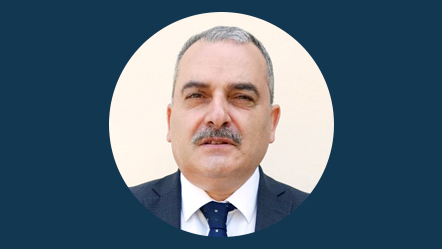
Khagani Taghiyev
Member of the Judicial-Legal Council
The Republic of Azerbaijan carries out wide judicial-legal reforms in order to improve the efficiency of justice and attaches great importance to cooperation with leading international organisations. The Project “Support to increased efficiency of courts, improved training of judges and judicial self-governance in Azerbaijan” successfully implemented in the framework of the Partnership for Good Governance between the Council of Europe and the European Union, is a good example of such fruitful cooperation.
One of the positive aspects of this project was the practical meaning it carried. During two years there were organised visits to the pilot courts, useful activities implemented in some European countries, as well as in Strasbourg and Baku.
In the course of the project, satisfaction surveys have been prepared and organised in the pilot courts, trainings on court management held for judges and court staff, best practices learnt in regard to implementation of the CEPEJ guidelines on judicial statistics and judicial time management.
The efficient cooperation during the above-mentioned activities, valuable recommendations and practical support from the CEPEJ representatives and experts, as well as efforts by the local partners representing the justice and judicial system of Azerbaijan, have overall ensured the successful implementation of the project.
We believe that the experience, knowledge and capacities gained as a result of the implemented cooperation will be applied in the practice of other courts too, and will serve the development of the judicial system of our country.
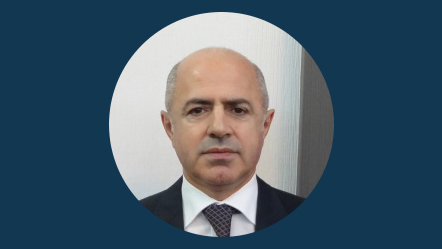
Mubariz Akbarov
Chair of the Sheki Court of Appeal
I appreciate as very important the fact that the Sheki Court of Appeal was involved, along with other 4 pilot courts (Sumgayit Court of Appeal, Baku city Yasamal District Court, Oghuz District Court and Sumgayit Administrative-Economic Court), in implementation of the Council of Europe/European Union Partnership for Good Governance 2015-2017 Project “Support to increased efficiency of courts, improved training of judges and judicial self-governance in Azerbaijan”. Implementation of wide judicial-legal reforms in Azerbaijan enhanced the need for establishment of modern court infrastructure, as well as application of adequate methodology in courts. In this view, the fruitful cooperation with the CEPEJ during these two years has been very relevant, and the trainings on implementation of the CEPEJ tools on efficiency of justice and CEPEJ methodology have been practically very useful. In the course of the project, as a result of gained theoretical knowledge and practical skills, satisfaction surveys have been implemented in the pilot courts, statistical analyses drafted, judges’ performance evaluated based on the CEPEJ indicators, action plans prepared and new targets set in order to improve the efficiency of the court performance, in accordance to the CEPEJ tools and guidelines.
Sheki Court of Appeal undertakes a lot of efforts in establishing credible relations with public and respectively increasing communication capabilities. Along with other measures undertaken in this regard, I would like to particularly emphasize the satisfaction surveys implemented in accordance to the CEPEJ recommendations. Implementation of these surveys allowed to identify the level of satisfaction with the court services among different target groups and define the areas that need to be improved by the court. At the same time, based on the CEPEJ best practices, each of the pilot courts gained an opportunity to identify for itself the relevant form and method of communication with public.
The Sheki Court of Appeal considers sustainable implementation of the CEPEJ tools and guidelines, aimed at increasing efficiency and evaluating its performance, as one of the priorities and believes in the positive impact of the overall experience on the court services.
Using this opportunity, I would like to express my deep gratitude to the European Union, Council of Europe and the CEPEJ experts’ team for implementation of this project.
 Improving the efficiency of courts and the quality of judicial services in the Republic of Moldova
Improving the efficiency of courts and the quality of judicial services in the Republic of Moldova
Between June 2015-March 2017 the Council of Europe and authorities of the Republic of Moldova worked together to improve the efficiency of courts and the quality of judicial services, as well as lawyers’ self-governance. This two-year project "Strengthening the efficiency of justice and support to lawyer’s profession in the Republic of Moldova", was organised under the European Union and the Council of Europe Partnership for Good Governance. The participants and beneficiares of the project were interviewed to discover the impact it has had, and will continue to have on their work.
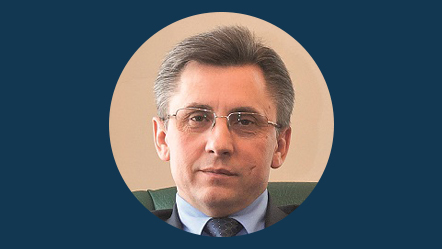
Mihai Poalelungi
President of the Supreme Court of Justice of the Republic of Moldova
President of the Supreme Court of Justice, Mihai Poalelungi appreciated the contribution of the European Union and the Council of Europe project “Strengthening the efficiency of justice and support to lawyer’s profession in the Republic of Moldova”:
“We are firmly convinced that the CEPEJ instruments successfully implemented through the project in six pilot courts, including the Supreme Court of Justice, will improve the efficiency and quality of the judicial process, the services provided to court users. Thanks to the experience and knowledge gained through this project, we acquired practical tools to improve time management in court proceedings, both at court and national levels. Thus, the project responded to a real need of the judiciary at the current stage of optimising the judicial map and the implementation at national level will strengthen the institutional capacities of the courts.”
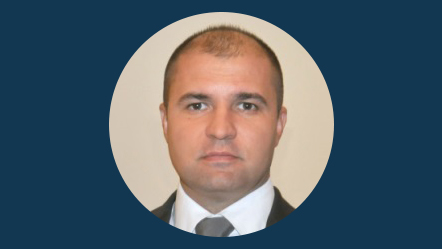
Vladimir Cebotari
Minister of Justice of the Republic of Moldova
Vladimir Cebotari, Minister of Justice of the Republic of Moldova noticed that “I am grateful to the project “Strengthening the efficiency of justice and support to lawyer’s profession in the Republic of Moldova”, funded as part of the European Union and the Council of Europe Partnership for Good Governance in the Eastern Partnership Countries, for its prolific activity in our country.
Over the past two years, representatives from 6 pilot courts of Moldova, as well as my colleagues at the Ministry of Justice, from the Agency for Court Administration, have been trained to organise surveys in view of measuring court users’ satisfaction with services they received after entering in contact with courts. Officials were also trained and enabled to produce annual court activity reports based on the analysis of statistical performance indicators in line with the CEPEJ recommendations.
We have carefully studied the court coaching reports and the Guide addressed to the judiciary of Moldova. They refer to implementation of the priority criteria of the revised edition of the SATURN Guidelines for judicial time management and the Checklist for promoting the quality of justice and the courts, and were developed by the CEPEJ experts on the basis of the evaluation of the pilot courts. I am decided to encourage further implementation of their suggestions.
Developing the mechanism for performance analysis and management in each individual court of justice, as well as at the national level, is indispensable for optimisation of judicial timeframes. The lessons learned and the good practices developed by the pilot courts will help us to improve the quality of the services provided by courts, increase and maintain citizens' confidence in the administration of justice.
Based on some findings and proposals from the CEPEJ experts, we have also developed a list of recommendations for improving the judicial information system, which was included in the ministry's priorities.”

Pirkka Tapiola
EU Ambassador to the Republic of Moldova
EU Ambassador to the Republic of Moldova, Pirkka Tapiola shared hir testimonials: “The European Union and the Council of Europe share common values and standards in democracy, rule of law and protection of fundamental rights. Since many years they have joined forces to support democratic reforms. An example of joint intervention is the EU/ CoE Eastern Partnership Programmatic Cooperation Framework 2015-2017 (PCF), funded by the European Union and co-financed and implemented by the Council of Europe.
The project "Strengthening the efficiency of justice and support to lawyer’s profession in the Republic of Moldova" was implemented between March 2015 and March 2017, as part of the PCF. The project supported the cooperation between the judicial authorities of the Republic of Moldova with the European Commission for the Efficiency of Justice (CEPEJ). This is done in order to improve the efficiency of courts and the quality of judicial services.
Six pilot courts representing all levels of jurisdiction and the National Institute of Justice of the Republic of Moldova were coached and implemented the measures recommended by the CEPEJ in their day-to-day activities. The lessons learned from the pilot courts, will help all Moldovan courts and justice sector stakeholders to increase their efficiency and improve the quality of the judiciary.”
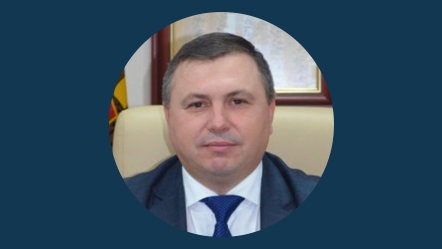
Dorel Musteaţă
Judge, Member of the Superior Council of Magistracy of the Republic of Moldova
Dorel Musteaţă, Judge, Member of the Superior Council of Magistracy of the Republic of Moldova, is certain that “Undoubtedly, the project implemented by CEPEJ had a positive impact on the work of the judiciary of the Republic of Moldova. Judges and representatives of the pilot courts’ secretariats were familiarised with the main CEPEJ instruments for improving time management and the quality of justice, as well as on how to collect and analyse judicial statistics. The activities of the project also focused on the implementation of satisfaction surveys, as measures to assess and improve the quality of judicial services.
I would like to point out that the project was appreciated by the members of the Superior Council of Magistracy, which supported a follow up in the entire judiciary in Moldova.”

Diana Scobioală
Director of the National Institute of Justice of the Republic of Moldova
Diana Scobioală, Director of the National Institute of Justice of the Republic of Moldova, shared her opinion about the project: “Thanks to the support of the project “Strengthening the efficiency of justice and support to lawyer’s profession in the Republic of Moldova”, in the judicial initial and continuous training curriculum of the National Institute of Justice have been included and institutionalised the course on judicial management, including the CEPEJ tools. Within this course the emphasis is put on developing the skills necessary to judges and court staff to adequately manage the time and to ensure an overall efficient management of courts. Involvement of the National Institute of Justice in this project has facilitated the sharing of experiences in the field of court management and the taking over of the best practices in enhancing the efficiency of courts and improving the quality of justice, as well the exchanges on the main challenges of judicial training schools.”

Ion Guzun
CEPEJ national expert, lawyer, member of the NGO „Legal Resources Centre from Moldova (LRCM)”
Ion Guzun, CEPEJ national expert, lawyer, member of the NGO „Legal Resources Centre from Moldova (LRCM)” told: "Implementation of the CEPEJ tools in the Republic of Moldova is a great step forward in court administration, court statistics and evaluation of the court services by different users. These tools can be used for a more professional evaluation of the current court administrators or of judges’ professional achievements. I do believe that the pilot courts, the Superior Council of Magistracy and the Ministry of Justice have understood the importance and convenience of implementing such useful mechanisms, including for the evaluation of the court’s and/or judge’s workload.
For me personally, it was a great opportunity to be part of the project’s expert team. I was honoured to implement activities, while learning both from excellent CEPEJ experts and from dedicated court staff. Having had such a good cooperation with the court staff, I hope the CEPEJ tools will be continuously implemented, especially through periodical reporting of the statistical data and court performance indicators to the public, by all the courts and the central judicial administration."
 Impact on Lawyers’ Association
Impact on Lawyers’ Association
The "Support to the Moldovan Bar Association" component of the Project on strengthening the efficiency of justice and support to lawyers’ profession in the Republic of Moldova worked towards strengthened lawyers’ self-governance.

Vladimir Palamarciuc
Lawyer and the president of the Association of Young Lawyers
Mr Vladimir Palamarciuc, a lawyer and the president of the Association of Young Lawyers, who was also a member of the working group established for the revision of the Code of Ethics, is certain that “the improved document will help to strengthen the trust in the profession and to build a good image of the lawyer in the society. Starting from the lawyer's role in the administration of fair justice, ethics guide the lawyer in pursuing his/her mission”, explains the young lawyer. "The experience of European experts invited by the Council of Europe project to assist the Moldovan Bar Association in aligning the ethical norms of Moldovan lawyers to European standards, has been extremely useful”.

Ion Guzun
Legal Adviser at the Legal Resources Centre from Moldova
Representatives of civil society also welcomed the new Code of Ethics, Mr Ion Guzun, Legal Adviser at the Legal Resources Centre from Moldova, believes “the Code of Ethics brings clarity for both for lawyers and the general public about the actions of a lawyer while carrying out his/her duties, as well as his/her off-duty conduct. The Code of Ethics must also answer the question what is allowed and what actions are not worthy of a lawyer. It is a constitution for lawyers, so to speak”. At the same time, Ion Guzun argues that “as the Republic of Moldova is part of the European and international family, our lawyers participate in activities regarding the protection of rights of individuals and companies abroad and vice versa, it is imminent that ethical standards would be connected to the best European and international practices”. “Moreover, social norms and relationships evolve and we cannot fall behind. This should be done continuously and the legal profession shall be pro-active. Obviously, we do not adjust rules because others have done it. Any amendment or regulation that would protect lawyers and, indirectly, individuals and companies, is to be encouraged,” states the representative of the Legal Resources Centre from Moldova.

Nina Lozan
President of the Moldovan Bar Association
The President of the Moldovan Bar Association, Mrs Nina Lozan, has appreciated the contribution of the Council of Europe-EU Project “Strengthening the Efficiency of Justice and Support to the Lawyers’ Profession in the Republic of Moldova” and the American Bar Association Rule of Law Initiative ABA ROLI Moldova. In particular, Mrs Lozan has underlined the important contribution of the experts Mr Vahe Grigoryan and Ms Lucy Dupong, President of the CCBE Ethics Commission (2009-2014) who shared best practices on ethical rules for lawyers enabling the later to fulfil their role in defending human rights and fundamental freedoms. She concluded that “in the new version of the Code of Ethics, adopted at the General Assembly of lawyers on 1 July, the rules of professional conduct are fully consistent with the rules of conduct of European lawyers, thus guaranteeing lawyers’ independence and defending our integrity within the administration of justice and for the protection of human rights”.
 Strengthening the Application of the European Convention of Human Rights in Georgia
Strengthening the Application of the European Convention of Human Rights in Georgia
Since 2015, the project focused on harmonising national judicial practices to European standards and strengthening the analytical capacities and application of European Court of Human Rights case law by the courts. To achieve some tangible results, a combination of approaches and methods were used through targeted workshops and training seminars for the legal professionals (judges, prosecutors, lawyers, court clerks), peer to peer trainings, training of trainers and exchanges of experiences, organisation of study visits and provision of Council of Europe expertise. The beneficiaries of the project were interviewed to discover the impact it has had, and will continue to have, on their work.
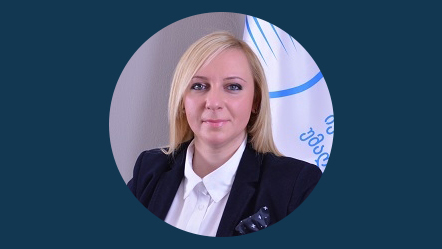
Keti Kvinikadze
Deputy of Director of the High School of Justice, Georgia
Professional trainings covered important topics directly related to the needs of the judiciary, including issues related to the legislative changes.The project strongly contributed to the enhancement of both major fields of High School of Justice’s activities: provision of initial and in-service training programmes

Ana Shalamberidze
Supreme Court of Georgia, Head of Communications and Coordination II Category, Deputy Head of the Primary Structural Unit
The project raised the knowledge of judges and assistants to judges in human rights law, was supporting the Consultative Council of the Supreme Court and strengthened the cooperation of lower court judges to the higher instances to unify the court practice. A survey on Application of the Standards of the European Convention on Human Rights by the Common Courts of Georgia provided a clear picture on usage of the European Court of Human Rights case law in the national judgments.

Salome Shengelia
Head of the Human Rights Unit at the Chief Prosecutor’s Office, Georgia
The project was very effective in helping the prosecutors to understand the key notions of the European human rights standards and in supporting the continuous education of prosecutors. Since 2015, almost 60 learning project activities trained more than 1200 prosecutors and investigators.
